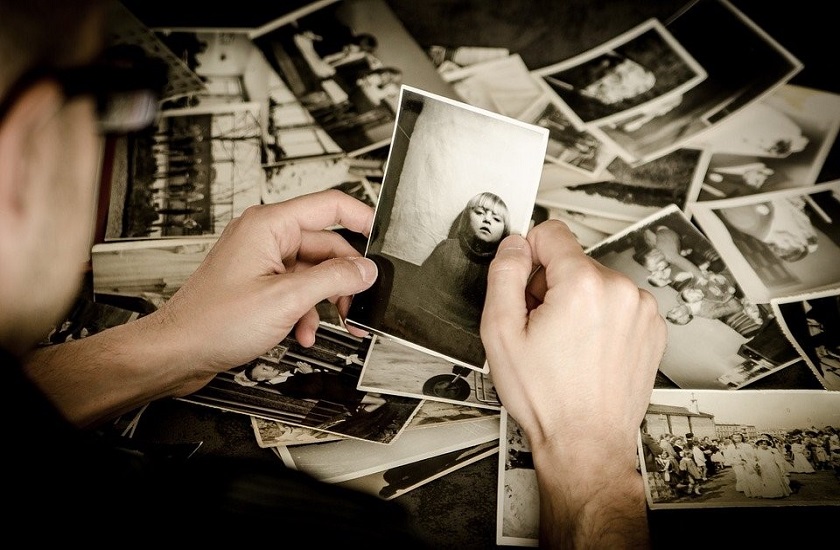Biography work: one's own history as a learning object
(Reading time approx. 5 minutes)
Dealing with one's own biography helps to uncover one's own resources. Learning processes that include aspects of life history are more enjoyable, states Renate Brüser, director of the ÖIBA, in the following interview.
Biography work is also used in adult education, e.g. personality development. “Dealing with formative events and the influence of political and social circumstances on one's life can be very valuable for learning processes of adults”, says Renate Brüser, director of the Austrian Institute for Biography Work (Österreichischen Instituts für Biografiearbeit (ÖIBA). She talks about what biography-oriented approaches can contribute to learning in adulthood, which topics are often dealt with and which competences are developed in the course of biography work.
Friedl: Biography work involves an intensive examination of one's own history. In your opinion, what can biography-oriented approaches contribute to learning in adulthood?
Brüser: In adult education, we often talk about connecting learning. If you link new things with what you have already learned, it is easier to remember them. Every person already has his or her own life story with a myriad of events, thoughts and feelings. Learning in biography work builds on this. And that is why the topics of biography work are particularly appealing and interesting. In short: learning within the framework of biography work is easier, it is more enjoyable and what is learned is internalised more quickly. This is because life-historical aspects are always included.
Friedl: To what extent does learning about oneself in the context of biography work also mean learning for life?
Brüser: If I know how I became the person I am now, if I understand how social, political, historical and societal circumstances have influenced the course of my life, then it is easier for me to accept myself and my life so far, with its beautiful and painful experiences. Dealing with the past leads to a life balance, resources emerge, views and opinions about oneself and the world can change. This helps to accept and shape the present life and to develop life perspectives for the future.
Friedl: In which areas of adult education is biography work frequently used?
Brüser: Up to now, biography work has mainly taken place in seminars on personal development and in events that have the theme of remembering, e.g. storytelling cafés.
Friedl: Are there methods that have proved particularly successful?
Brüser: A particularly important method is the lifeline. Here, important life events are arranged chronologically. In this way, the lifeline provides a good overview of life so far. There are many variations of this method. The lifeline can be drawn on paper or laid on the floor as a rope. The life events and phases of life can be described in writing or provided with symbols. Telling about one's lifeline to another person or a group often brings additional insights. Both the person telling the story and the listeners experience this as enriching and intense.
Another method specific to biography work is the memory case. For this, objects on a certain topic and/or from a certain time are collected and packed into a suitcase, e.g. kitchen utensils from the 40s or home objects and clothes from the 70s. The suitcase is brought to the event, the people present can unpack the suitcase, look at and feel the objects and immediately memories are awakened. A memory suitcase encourages remembering and lively storytelling about it. In a group of the same age, a special "we" feeling is created.
Friedl: Biography work is aimed at people of all ages. Which topics usually play a major role, especially with adults?
Brüser: The most important topic is the family biography. Everyone asks themselves the question, where do I come from? Who were my parents and grandparents? In which family did I grow up? What traditions were cultivated there? What opinions and attitudes were held there? How did these shape me as a child? Which values that I was taught in childhood do I still live by today, which ones have I abandoned and why? Another important topic is the professional biography. Being professionally active, usually for a few decades, offers the opportunity to contribute to the world and society, to do what is meaningful to you. In professional life, you can show what you can do, which is enormously important. for your self-confidence. Through one's profession and work, one gets a place in society, earns money for one's livelihood and additional hobbies. Success and failure in one's job are among the most intense experiences in one's life.
Friedl: What can dealing with one's own biography contribute to non-formal and informal competence acquisition?
Brüser: Dealing with one's own biography provides orientation. Significant life events are remembered. In biographical work, becoming aware of what one has already achieved, what obstacles one has overcome, strengthens and gives courage to live, to shape one's present life and to plan for the future. During biographical work in groups, one acquires additional skills: Communicating in the group, expressing and telling one's own experiences, empathically listening to the life stories of other participating people, getting to know other perspectives and coping strategies, realising one's own limits and decisions about what one wants to tell and what not. The participants also learn how to use creative methods. Biographical dance, for example, supports the physical expression of life events. In memory theatre, the personal stories of those present are acted out theatrically and it offers the opportunity to slip into different roles, which increases empathy with other people.
More information:
Text/Author of original article in German: Jennifer Friedl/CONEDU
Redaktion/Editing of original article in German: Lucia Paar/CONEDU
Bilder/Pictures: Pixabay-Lizenz, jarmolouk, pixabay.com







Životopis